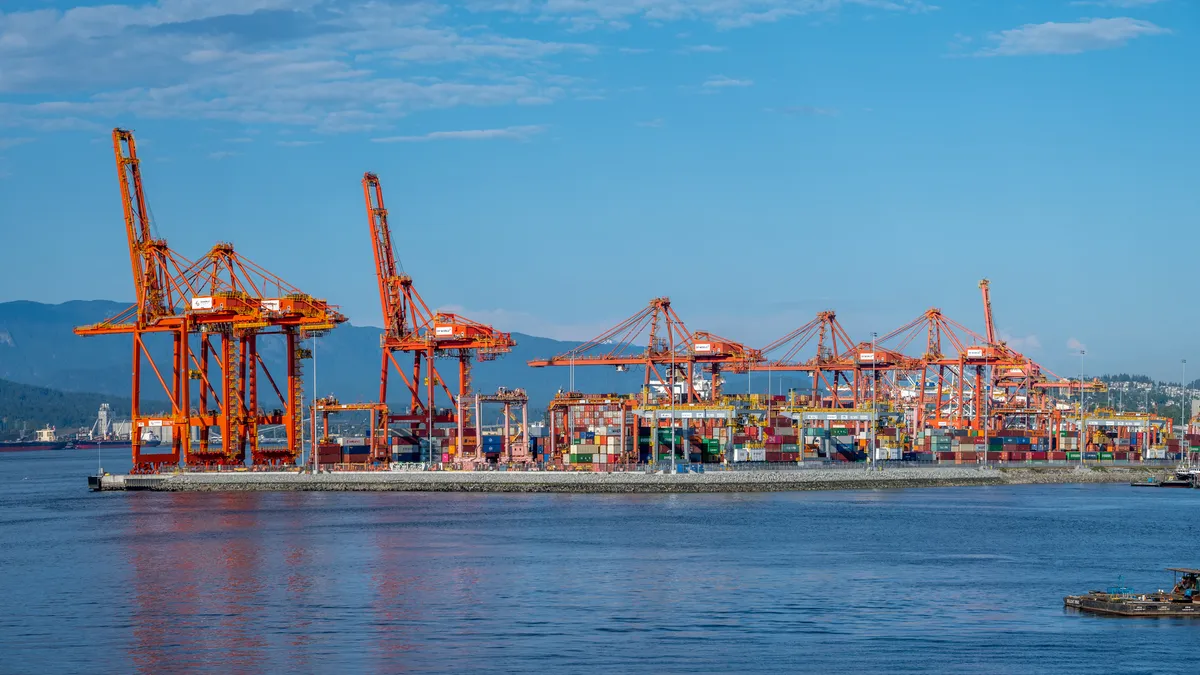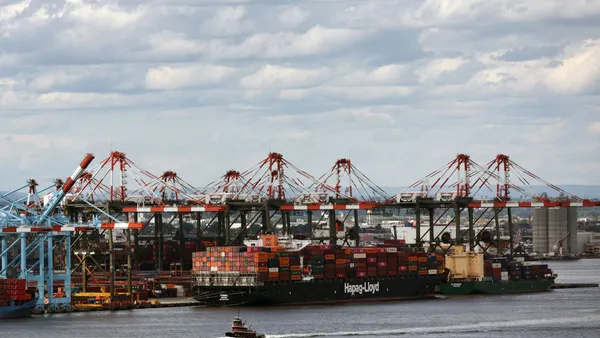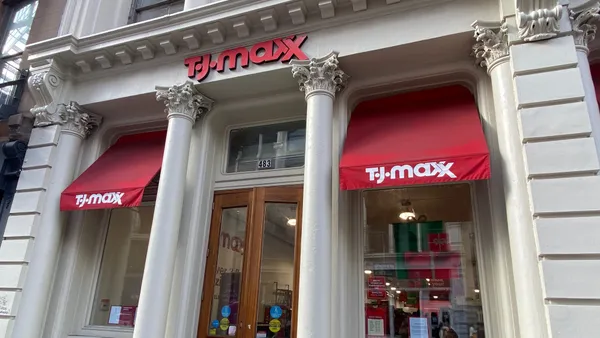Canada's West Coast ports have a four-year labor contract in place, ending a negotiating process that has often been a rollercoaster for supply chain stakeholders.
After five months of negotiations, mediation and conciliation, members of the British Columbia Maritime Employers Association and the International Longshore and Warehouse Union Canada officially ratified a contract during the week of July 31.
The two parties hit several roadblocks before reaching a final deal. When the two sides first hit a standstill in April, they called upon a Canadian federal mediator for help. Thereafter, the saga included a 13-day strike, an illegal work stoppage, a voted-down proposed settlement and two tentative deals as negotiators and Canadian officials worked towards a resolution to the labor talks.
See the timeline below for a day-by-day recap of the negotiations.
A timeline of Canada's months-long West Coast port labor negotiations
-
The BCMEA notified ILWU Canada of their intent to begin collective bargaining for contracts ending on March 31, 2023.
-
Bargaining starts between ILWU Canada and the BCMEA, each side exchanges proposals and additional dates are arranged.
-
ILWU Canada issues a notice of dispute to the federal government, the catalyst for official mediation to begin.
-
Federal government appoints two conciliation officers as mediators, providing them a 60-day mandate to help the parties reach a deal.
-
After mediation fails to result in a deal within 60 days, the two parties enter a 21-day cooling off period, after which strikes or lockouts can take place. The two parties agree to not begin a strike or lockout until June 24, 2023, and to continue meeting with mediators.
-
ILWU Canada authorizes local chapters to organize a strike vote.
-
Union local chapters vote to authorize a strike with 99% approval. ILWU Canada announces the results on June 12.
-
ILWU Canada provides a 72-hour notice of their intent to strike on July 1.
-
The two parties agree through mediation to continue servicing cruises in Vancouver, Prince Rupert and Vancouver Island in the event of a strike.
-
ILWU Canada begins strike.
-
Negotiations pause for health on Saturday evening after 33 consecutive hours of bargaining, talks restart the next morning.
-
The BCMEA walks away from negotiating table, according to the union. Employers' association calls for a "course change" from the union.
-
Union and employers' association trade allegations via public statements, but do not return to the bargaining table. They continue to meet with mediators.
-
ILWU Canada and the BCMEA return to the bargaining table with the assistance of federal mediators.
-
The two parties continue talks but make little progress, according to the BCMEA. Each side issues statements showcasing their position and proposed solutions but the strike continues.
-
Canada Minister of Labour Seamus O'Regan asks the senior federal mediator assisting with the contract talks to propose a settlement to the negotiations within 24 hours. O'Regan informs the parties they would then have 24 more hours "to decide whether or not to recommend ratification of the terms to their principals.”
-
ILWU Canada and the BCMEA reach a tentative deal for a 4-year contract. The 13-day strike ends and port operations resume.
-
ILWU Canada goes on strike in the evening after the union's longshore caucus rejects the terms of the deal.
-
The Canada Industrial Relations Board rules the union's Tuesday strike illegal, saying a 72-hour notice was not provided. The union disputes the conclusion, but returns to work and issues a separate notice alerting maritime employers of an upcoming strike on July 22.
-
Canada Prime Minister Justin Trudeau convenes a response group to discuss the impact of a West Coast port strike. Trudeau directs officials to pursue "all available options to ensure the stability of our supply chains," according to a readout.
-
ILWU Canada cancels the July 22 strike by revoking its official notice. The BCMEA says the past 24 hours show the situation remains "fluid and unpredictable."
-
ILWU Canada announces they will recommend the tentative settlement to members during a stop work meeting on July 25.
-
ILWU Canada holds a stop work meeting to recommend the proposed deal to members. The BCMEA says they expect members will vote later in the week and that results would soon follow.
-
ILWU Canada announces its longshore division voted down the tentative deal, and called on employers to "come to the table and negotiate something that works." The BCMEA says they are disappointed by the news, and will await for federal officials to define the next steps.
-
Canada Minister of Labour Seamus O’Regan directs the Canada Industrial Relations Board to assess the situation, determine whether the union vote had closed the door for a negotiated resolution, and if so, prepare to impose a collective agreement or final binding arbitration to resolve remaining issues.
-
ILWU Canada shares a public statement to employers from President Rob Ashton explaining why union members voted down the deal. In it, Ashton cites concerns over safety, wellbeing and outsourcing of maintenance work, and reaffirms the union's willingness to negotiate a new deal with the BCMEA and federal officials.
-
The BCMEA and ILWU Canada agree on a new tentative deal days after union members' "NO" vote, restarting the ratification process. The maritime employers say the two sides are now planning to recommend the terms of the revised deal to their members. The BCMEA also acknowledged the Canada Industrial Relations Board helped the parties reach a tentative deal.
-
BCMEA members ratify the tentative deal.
-
ILWU Canada members vote on the tentative deal after the longshore caucus recommended its approval.
-
ILWU Canada announces members have ratified the four-year port labor contract, with nearly 75% in favor. Stakeholders react to the news, with federal officials saying they'll investigate how the prolonged talks resulted in disruptions to ensure it does not happen again.















